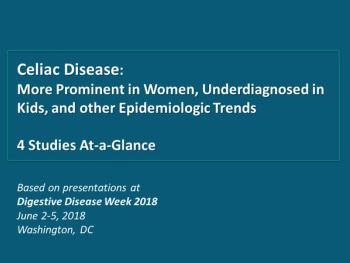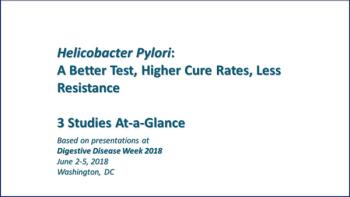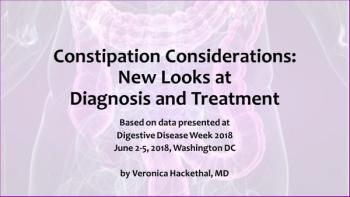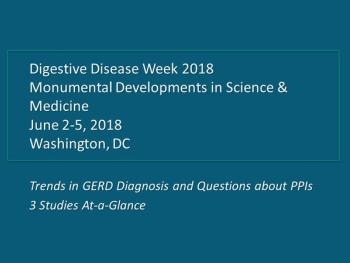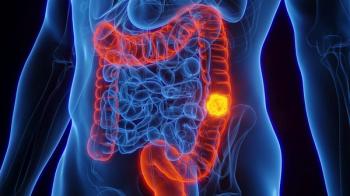
DDW 2018: 3 Studies on Dietary Factors in FGID
Research summarized for PCPs on: low FODMAP diets plus vit D; differential FODMAP intolerance; and the impact of food allergy on IBS-D.
The slides above offer top-line results of new research presented at Digestive Disease Week 2018 -- specifically in the area of dietary factors that have an impact on functional gastrointestinal disorders. The 3 studies reviewed shed light on: The impact of vitamin D supplementation and low-FODMAP diet as treatment for irritable bowel syndromeThe difference in effects on FGID between fructose and lactose and implications for treatment The impact of food allergy on IBS-D and the future role for serologic testing in patient identificaton Â
Newsletter
Enhance your clinical practice with the Patient Care newsletter, offering the latest evidence-based guidelines, diagnostic insights, and treatment strategies for primary care physicians.

